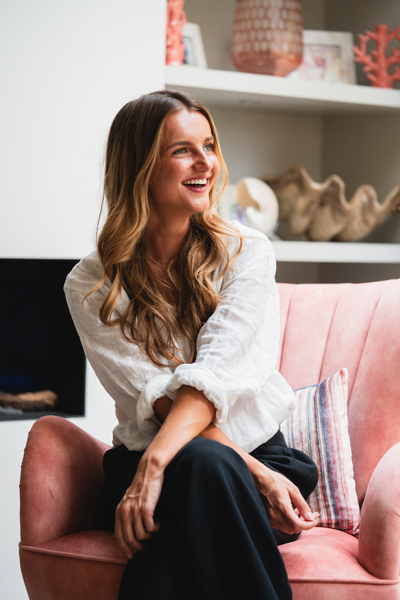 For a long time, I didn’t understand what it meant to process grief – or even that I needed to.
For a long time, I didn’t understand what it meant to process grief – or even that I needed to.
As a child, I experienced deep loss early on. Family members, close friends, teachers. I was surrounded by grief, but without the tools or awareness to handle it. It felt like too much, too soon. And so, I shut down. I thought being strong meant not feeling. I thought survival meant pushing everything away.
Growing up, grief was a shared, silent experience. It was there in the air, in the energy, but rarely talked about. No one ever explained how to feel sadness or how to sit with pain – and definitely not how to heal it. I developed what I now recognise as unhealthy coping strategies: over-functioning, disconnecting, striving externally, and trying to control life.
The Hoffman Process was a space that allowed me to begin feeling everything I’d numbed for years. It helped me name emotions I didn’t even realise I’d buried. More than that, it taught me how to feel, how to listen, express, and connect inward.
In our fast-paced, success-driven world, we’re never taught to build a relationship with ourselves. Schools don’t teach emotional awareness. No one sits us down to explain what a feeling is, let alone how to move through it. We’re taught to achieve, to produce, to compare. I fell into that trap too, chasing happiness in the ‘next’ thing: the next goal, the next plan, the next fix.
But the Hoffman Process reminded me that the most important relationship I’ll ever have is the one with myself. That’s the one that grounds every other part of life. Through this work, I’ve discovered a strength that doesn’t come from shutting down, but from softening, opening, and allowing.
As the youngest person in my group, I gained a unique perspective. I saw how deeply patterns can root themselves if we don’t do this work early. I used to roll my eyes when people used the word authenticity, it sounded like a buzzword. But I now understand what it really means: living in alignment with what’s true inside you. Living without regrets. Listening to your inner wisdom before it gets drowned out by the noise of the world.
The Process gave me tools that are not only profound, but practical. It’s not just ideas, it’s techniques you can use every day to ground yourself, centre yourself, and re-choose your path. I’ve always loved meditation and it’s an essential part of my life, but combining it with the Hoffman Process gave me a much deeper awareness, especially around recognising and shifting the negative patterns I was stuck in. It’s made my meditation practice far more grounded, insightful, and transformative.
One of the most unexpected gifts was reconnecting with my inner child with joy, spontaneity, and the sheer aliveness of being here now. It helped me lighten up, play more, and stop taking everything so seriously.
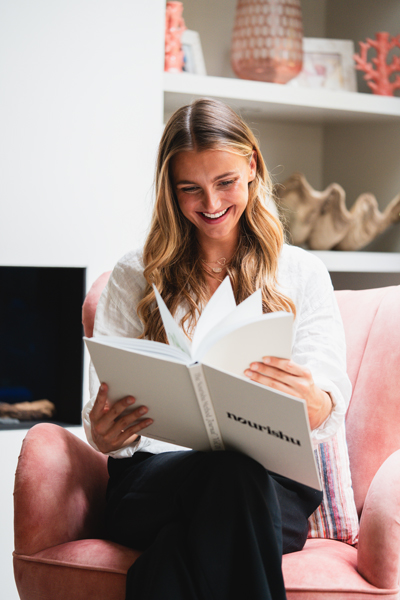 We all have healing to do. No one is exempt. And it’s no wonder so many of us struggle because we were never given the tools to begin that healing. The Hoffman Process was my starting point. And I’m so grateful I found it when I did.
We all have healing to do. No one is exempt. And it’s no wonder so many of us struggle because we were never given the tools to begin that healing. The Hoffman Process was my starting point. And I’m so grateful I found it when I did.
The Hoffman Process didn’t just change how I relate to myself, it also deeply influenced my work. I co-founded a business called The Nourishu Method alongside a registered nutritionist, with the mission of helping people build healthier, more joyful relationships with food. Our goal is to prevent eating disorders and break the exhausting cycle of restriction, guilt, and control and instead, reconnect people with the pleasure, ease, and celebration that food is meant to bring. We do this through a self-paced online course and a beautifully designed interactive four-module journal that guides people through reflection, emotional awareness, and practical tools for healing.
What Hoffman gave me, emotional intelligence, self-compassion, and clarity around my patterns has directly shaped the foundation of Nourishu. It’s allowed me to create from a place of authenticity and help others access the kind of freedom I’ve found through this work.
I’ll leave you with the quote that sums up my Hoffman experience.
“Man sacrifices his health in order to make money. Then he sacrifices money to recuperate his health. And then he is so anxious about the future that he does not enjoy the present… he lives as if he is never going to die, and then dies having never really lived.” — The Dalai Lama
Estelle Thomas is the founder of The Nourishu Method, helping people build a healthy and joyful relationship with food, body and self. Find out more at thenourishumethod.com or Instagram: @thenourishumethod

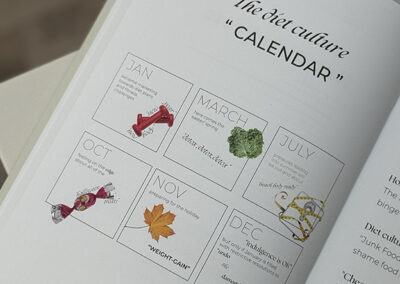
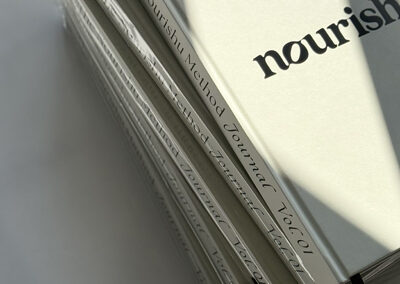
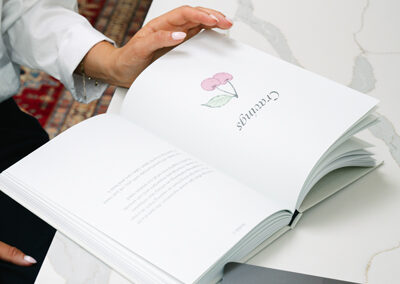




 Sign up to receive monthly newsletters from Hoffman
Sign up to receive monthly newsletters from Hoffman